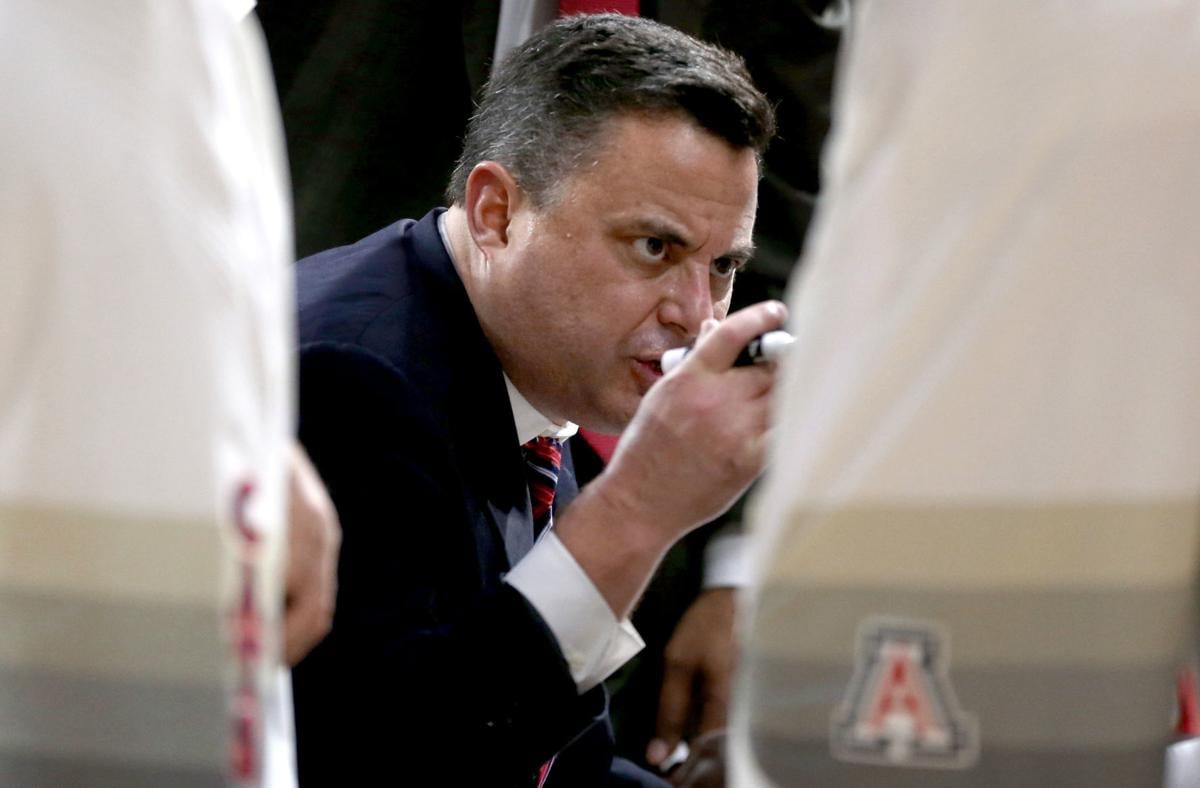Arizona’s pending infractions case might be finished sooner under new guidelines to the NCAA’s independent resolution process, but that isn’t necessarily a good thing for the school.
The NCAA Board of Directors announced this week that the Independent Accountability Resolution Process, which is handling the infractions cases of Arizona and five other schools, will now have to accept the results of the NCAA investigators unless it “can demonstrate a compelling reason why additional investigation is required.”
Previously, the IARP’s “Complex Case Unit” of outside investigators and attorneys were given the authority to accept, modify or completely discard the findings of the NCAA’s in-house enforcement staff however it saw fit.
The change could mean the five Level I charges against Arizona and its men’s basketball program are more likely to hold up in the resolution process. Upon receiving the NCAA’s Notice of Allegations in October, Arizona asked for its case to be moved to the IARP. And as recently as March, UA president Robert C. Robbins said it was possible charges could be reduced.
“They could have new findings. We just have to wait and find out what the final word is going to be,” Robbins said then, noting that he had not then heard from the IARP at that point. “They could also very well eliminate some of those allegations that come forward as they look at, discuss some of the things that are in the allegations. They can be reduced.”
Created in the wake of the 2017 federal investigation into college basketball, the IARP is a different process than the standard peer-reviewed NCAA track.
While the NCAA resolution track involves in-house enforcement staff and ends with a hearing in front of the infractions committee, the IARP takes a case through an investigatory Complex Case Unit before an Independent Resolution Panel rules on it. The NCAA’s standard rulings can be appealed, but IARP rulings cannot.
“Our traditional peer-review infractions process is perfectly positioned to deal with the overwhelming majority of cases that come in every year,” Naima Stevenson Starks, the NCAA’s VP for hearing operations, told the Star in October 2020. “But there’s a handful of cases ... that just are not really well-situated to be handled by a process that is predicated on a collaborative, self-governing, self-regulating model. That is really what the independent structure was designed to address.”
The IARP began accepting cases in March 2020, first taking on one from Memphis, but has yet to resolve any of them. Other than Arizona and Memphis, the IARP has also accepted cases from NC State, Louisville, Kansas and LSU.
“The oversight committee, which has expressed concerns about the delay in the resolution of cases referred to the independent process, determined that much of the delay is the result of efforts by the Complex Case Unit to ‘re-investigate’ cases that the enforcement staff thoroughly investigated,” an NCAA news release said this week. “Accepting the enforcement staff’s results will speed the process significantly without compromising the goals of the Independent Accountability Resolution Process, committee members think.”
In addition, IARP cases will now have published timelines as they move from the acceptance phase to the Complex Case Unit and ultimately to the hearing panel.
The standard NCAA infractions resolution process includes a back-and-forth between the NCAA and the involved schools, and can often take six months after an NOA is delivered. The IARP has previously had no known timelines, only an internal “case management plan.”
“This change will provide transparency and improve credibility,” the NCAA said.
The NCAA issued five Level I charges and nine charges overall against the UA, alleging that, among other things:
Former UA assistant coaches Book Richardson and Mark Phelps arranged or were involved in falsifying academic records for two UA recruits, whom reports indicate were Rawle Alkins and Shareef O’Neal;
Richardson took $20,000 in bribes, which Richardson admitted to in a plea bargain;
Phelps tried to cover up a $500 loan he gave a player, reportedly Keanu Pinder.
The NCAA also handed former coach Sean Miller a Level I violation charge under the NCAA’s head coach responsibility rule, and hit the UA with another Level I charge for lack of institutional control.
In addition, the NCAA listed 10 aggravating factors, including that Robbins and athletic Dave Heeke “compromised the integrity of the investigation.” It alleged that, a week after the 2017 arrest of Richardson, Heeke and his head of compliance discussed and drafted “talking points related to the external and NCAA investigations that demonstrated from the outset a lack of commitment to cooperation and acceptance of responsibility.”
The NCAA also said UA’s outside counsel and head of compliance — at Robbins’ direction — conducted an unrecorded interview with Richardson without first notifying the NCAA enforcement staff “despite being engaged in a collaborative investigation and knowing Richardson was a key individual the enforcement staff wanted to interview.”
Atlanta-based attorney Stu Brown, who works with schools facing NCAA cases, said after UA released its NOA that the “NCAA enforcement staff has clearly positioned the case as Level I-aggravated for the university.”
If the IARP formally processes Arizona’s case Levei I aggravated, the NCAA’s penalty matrix calls for a postseason ban between two and five years. UA self-imposed a one-year ban last season.





